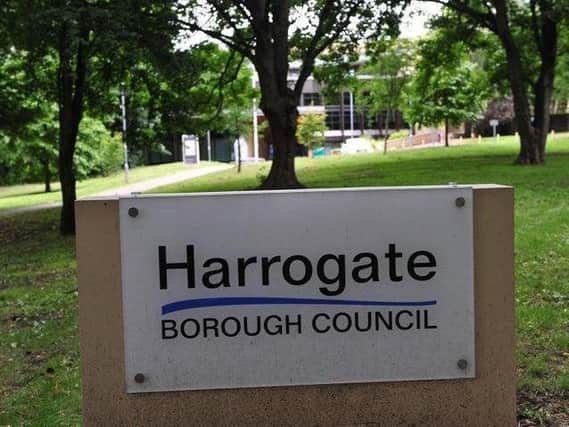Harrogate council writes off £632,000 in unpaid council tax and business rates


The debts - some of which stretch back to 1993 - were owed for a variety of reasons including taxpayers being untraceable, dead or in prison, and businesses going bust.
Matthew Waite-Wright, revenues and income manager at Harrogate council, told a cabinet meeting on Wednesday all attempts to recover the cash had been exhausted and that the amount written off was "minute" in comparison to the £237m total collections this year.
Advertisement
Hide AdAdvertisement
Hide AdHe said: "These write-offs are for last year's debts but also for preceding debts going to back to 1993. Each individual debt has been investigated fully and considered by at least two officers before the decision to write off has been made.
"We would stress that the figure of £632,000, whilst of course is a large number, is minute in comparison to the actual billings at the moment."
Harrogate council is not only responsible for collecting its own council tax and business rates charges but also those for North Yorkshire County Council and police and fire services. All figures mentioned also include these public organisations.
A breakdown of the debts written off show almost £339,000 was unpaid council tax bills and around £285,000 was unpaid business rates.
Advertisement
Hide AdAdvertisement
Hide AdThe most common reasons for outstanding payments were old debts which were "unreasonable to chase" and business insolvency. Other reasons included incorrect bills being issued, debtors moving abroad and ill health.
Mr Waite-Wright said in a report that writing off debts is good accountancy practice and would not impact on the council's spending plans.
He said: "The council has adequate bad debt provision, and there is no impact on the 2020/21 revenue budget. Identification of bad debt and taking decisions on irrecoverable debt is considered good financial management to ensure the Council is utilising its resources effectively.
Advertisement
Hide AdAdvertisement
Hide Ad"The amounts now recommended to be written off are a creditably small percentage of the annual collectable debit.
"The actual collection rate remains high at around 97% for council tax but has fallen to around 92% for non-domestic rates in 2020/21 due to Covid.
"However, this has not yet affected the level of write offs but an increase is anticipated in future years."
By Jacob Webster, Local Democracy Reporter